Data Scientist Roles and Responsibilities: Top Skills of the Decade↗️
Unfolding the Data Scientist Roles and Responsibilities” Welcome aboard, aspiring data science enthusiasts! Are you ready to dive into the world of data science and uncover the fascinating responsibilities and opportunities that await? Join us on this enlightening journey as we delve into the core Data Scientist roles and responsibilities, revealing the skills, techniques, and mindset required to excel in this dynamic field. From uncovering hidden patterns to driving data-driven decision-making, let’s explore the diverse dimensions that define the captivating role of a data scientist. Get ready to embark on a voyage of discovery and unlock the secrets that lie within the realm of data science!
Table of Contents
Who is a data scientist?
In the realm of data science, a data scientist is a skilled individual who possesses a unique blend of analytical prowess, technical expertise, and a passion for uncovering meaningful insights from complex data sets. Data scientists are curious explorers who possess a deep understanding of statistics, mathematics, and programming languages. They have a keen eye for detail and possess the ability to identify patterns and trends that may be invisible to others. With their expertise in data manipulation, statistical modeling, and machine learning algorithms, data scientists have the power to transform raw data into actionable insights.

Data scientists excel at communication, translating complex technical concepts into understandable insights for non-technical stakeholders. Moreover, they bridge the gap between data and decision-making, driving innovation and informing choices. Essentially, they’re multidisciplinary problem solvers. Also, they are the driving force behind the data revolution, fueling advancements in fields such as healthcare, finance, marketing, and more. Now, let us try to understand the typical data scientist roles and responsibilities.
What are the typical data scientist roles and responsibilities?
In this section, you will get a brief understanding of data scientist roles and responsibilities. So, basically, Data scientists play a vital role in organizations, utilizing their expertise in data analysis and interpretation to drive informed decision-making. Here are the key responsibilities that define a data scientist’s journey:
1.Data Exploration and Analysis
Firstly, Data scientists collect, clean, and analyze large volumes of data to identify patterns, trends, and valuable insights. In addition, they utilize statistical techniques and visualization tools to make sense of complex datasets, providing valuable information that guides business strategies.
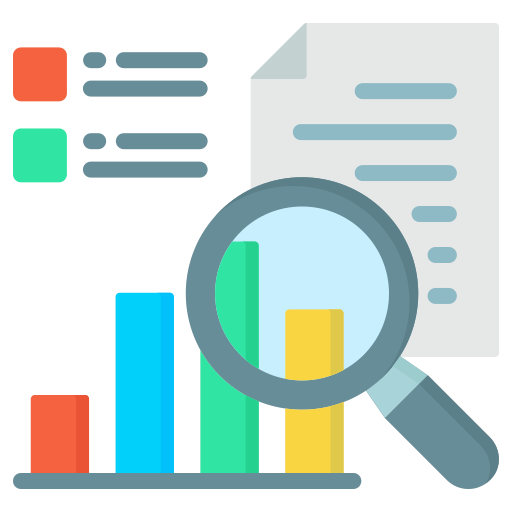
2.Building Predictive Models
In particular, developing predictive models using machine learning algorithms is a core responsibility of data scientists. So, these predictive models enable them to forecast future trends, identify potential risks, and make data-driven predictions that assist in business planning and optimization.
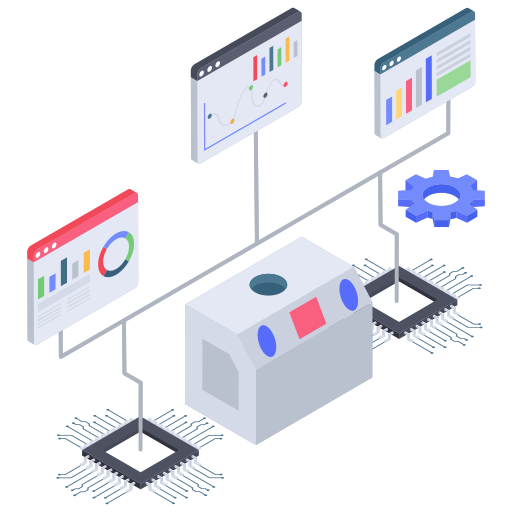
3.Machine Learning Implementation
Data Scientists roles and responsibilities include applying their expertise in machine learning to develop algorithms and models that automate processes and improve efficiency. Also, Data Scientists leverage techniques such as natural language processing, image recognition, and recommendation systems to extract insights from data. Note that, in a few of the organizations a Data Scientist doesn’t need to know a lot of NLP, Computer Vision, etc. But to compete with Machine Learning engineers, a Data Scientist is expected to keep themselves updated with multi-disciplinary skills.
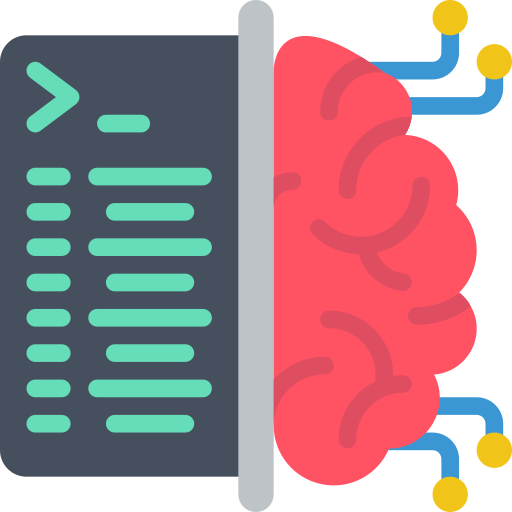
4.Collaboration with Stakeholders
Acting as consultants, data scientists collaborate with stakeholders across different departments to understand their analytical needs and provide actionable insights. Also, they communicate complex findings clearly and concisely, ensuring non-technical stakeholders can make informed decisions based on the data.
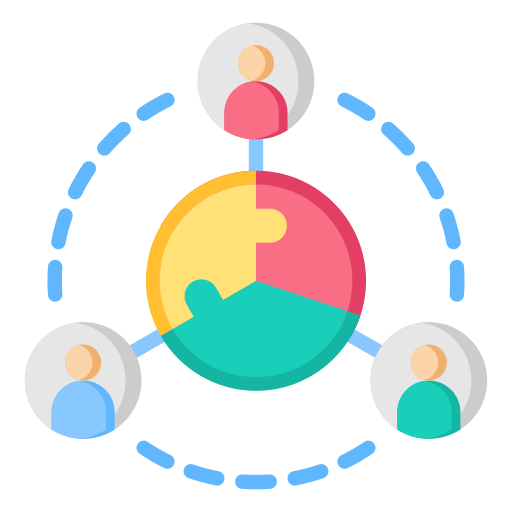
5.Data Preparation and Preprocessing
Data scientists invest a significant amount of time in preparing and preprocessing data before analysis. In addition, this involves cleaning the data, handling missing values, addressing outliers, and ensuring data quality. They also perform data integration and transformation tasks to make the data suitable for analysis.
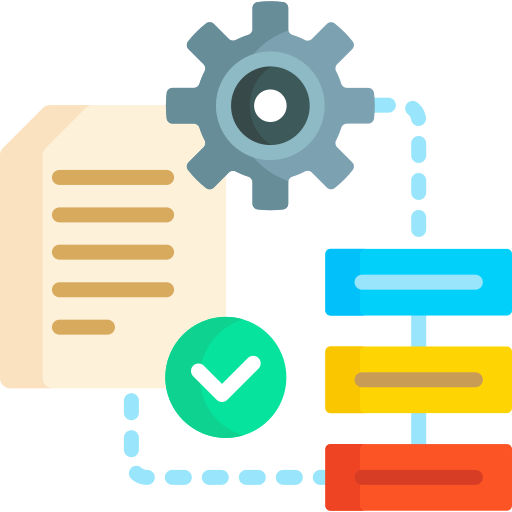
6.Continuous Learning and Improvement
In the ever-evolving field of data science, data scientists dedicate time to continuous learning, exploring new methodologies, tools, and industry trends. Therefore, this commitment enables them to enhance their skills, stay updated, and deliver innovative solutions.

7.Ethical Considerations
To begin with, Data scientists are responsible for upholding ethical considerations regarding data privacy, security, and bias. Therefore, Data Scientists ensure responsible data handling practices and work towards building fair and transparent models that avoid biases and promote inclusivity.

8.Feature Engineering
Data scientists are responsible for feature engineering, which involves selecting, creating, and transforming relevant features from the data. So, this process helps improve the performance of predictive models by extracting meaningful insights. Also, feature engineering requires domain knowledge, creativity, and a deep understanding of the problem at hand.

9.Experimentation and Evaluation
Data scientists design experiments and develop evaluation metrics to assess the performance of their models and algorithms. Moreover, they conduct rigorous testing, fine-tune parameters, and evaluate the effectiveness of different approaches to optimize the performance and accuracy of their models.
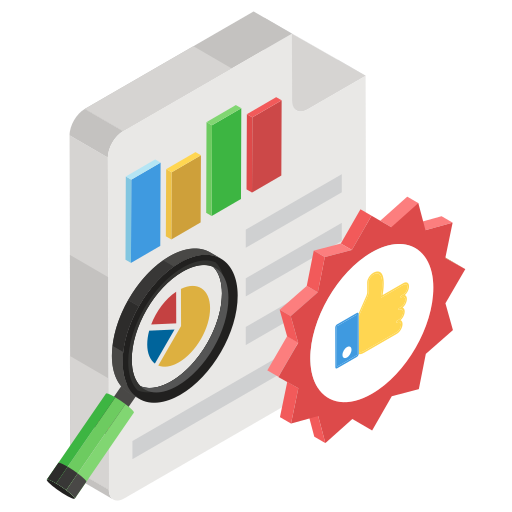
10.Communication and Data Storytelling
As you know, effective communication is a vital skill for data scientists. Therefore, Data Scientist must be able to convey complex technical concepts and findings to stakeholders clearly and understandably. So, Data scientists often use visualizations, reports, and presentations to communicate insights and tell compelling data-driven stories.

11.Collaboration and Cross-functional Work
Data scientists frequently collaborate with cross-functional teams, including business analysts, engineers, and domain experts. Also, they work together to define project goals, align on data requirements, and collectively solve complex problems. Moreover, collaboration and teamwork are essential for successful data science projects.

12.Agile and Iterative Approach
Furthermore, Data scientists embrace an agile and iterative approach to their work. Therefore, they continuously iterate on their models, incorporate feedback, and adapt to changing requirements. They are comfortable with experimentation and view failures as learning opportunities for improvement.
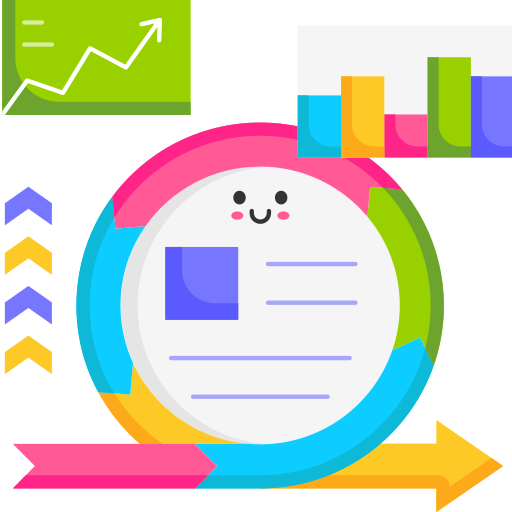
By embodying these roles and responsibilities, data scientists contribute to the multidimensional nature of their field.
Moreover, till now, you have had a brief idea about data scientist roles and responsibilities. Further, let’s explore the skills required to become a data scientist.
What are the top skills & qualifications that fulfill Data Scientist roles and responsibilities?
A successful data scientist requires a diverse skill set and a solid educational background. Here are the top skills and qualifications that can help you pave your way to a rewarding career in data science:
1. Proficiency in Programming
A strong foundation in programming languages such as Python, R, or SQL is essential for a data scientist. These languages enable you to efficiently manipulate and analyze large datasets, build predictive models, and create data visualizations. Additionally, knowledge of tools like Git for version control and collaboration is valuable.
2. Statistical and Mathematical Knowledge
Data scientists should have a solid understanding of statistics and mathematics. Therefore, concepts like probability, hypothesis testing, regression analysis, and linear algebra empower data scientists to draw meaningful insights from data and build accurate models. Knowledge of advanced statistical techniques such as time series analysis and Bayesian inference, is also beneficial.
3. Data Manipulation and Cleaning
Firstly, handling real-world datasets often requires cleaning and transforming the data into a format suitable for analysis. Therefore, proficiency in data manipulation techniques, such as data cleaning, merging, and aggregation, is crucial for data scientists to ensure the accuracy and reliability of their analyses. Secondly, familiarity with tools like Pandas, dplyr, or SQL for data manipulation is advantageous.
4. Machine Learning Techniques
Familiarity with various machine learning algorithms is essential for data scientists. Understanding algorithms like decision trees, random forests, support vector machines, and neural networks enables you to develop predictive models and make data-driven decisions. Knowledge of model evaluation techniques and hyperparameter tuning is also important for building robust models.
5. Data Visualization
Data scientists should be able to communicate their findings effectively through data visualizations. Skills in data visualization tools, such as Tableau, Matplotlib, or ggplot, allow you to create visually compelling representations of complex data patterns to convey insights. Moreover, knowledge of best practices in data visualization and storytelling techniques is beneficial.
6. Domain Knowledge
Having domain knowledge in a specific industry or field can be advantageous for data scientists. Also, understanding the context and nuances of the data being analyzed enables you to ask the right questions, identify relevant variables, and extract meaningful insights specific to that industry. Moreover, continuous learning and staying updated with industry trends are crucial for developing domain expertise.
7. Communication and Collaboration
Data scientists need to be able to effectively communicate their findings to stakeholders who may not have a technical background. In addition to strong communication skills, both written and verbal, data scientists need the ability to tell a compelling data-driven story as well. This is crucial in influencing decision-making. Also, collaboration skills play a vital role in working effectively in cross-functional teams and leveraging collective expertise.
8. Problem-Solving and Analytical Thinking
Data scientists should possess strong problem-solving and analytical thinking skills. Especially, the ability to identify patterns, think critically, and approach complex problems systematically is crucial for successful data analysis and model development.
Qualifications

- A bachelor’s or master’s degree in a relevant field such as computer science, statistics, mathematics, or data science is often required to enter the field of data science. However, alternative educational backgrounds with relevant experience can also be considered.
- Additional certifications or specialized training in data science, machine learning, or related areas can boost your credibility and demonstrate your commitment to continuous learning. Also, certifications like Certified Data Scientist (CDS) or Microsoft Certified: Azure Data Scientist Associate can help showcase your expertise.
Remember, while these skills and qualifications are important, a data scientist’s journey is a continuous learning process. Therefore, staying updated with the latest advancements in data science, participating in data science competitions or projects, and honing your skills through practical experience will help you thrive in this dynamic field.
Moreover, a lot of aspirants are confused between data scientists, data analysts, and data engineers. So, further in this blog on “data scientist roles and responsibilities,” let us understand the difference between these three roles mentioned above.
Differences between a data scientist, a data analyst, and a data engineer
In this section, we’ll explore the key differences between a Data Scientist, Data Analyst, and Data Engineer. While these roles often collaborate closely, they have distinct responsibilities and skill sets. Let’s dive in!
Data Scientist

So, as you know, a Data Scientist’s roles and responsibilities include extracting insights from complex and large datasets and utilizing statistical analysis and machine learning techniques. They are also responsible for developing and implementing predictive models, creating algorithms, and finding patterns in data to solve business problems. Furthermore, Data Scientists often work with programming languages like Python or R and employ techniques such as clustering, regression, and natural language processing.
Example: Imagine a retail company that wants to predict customer churn. So, a Data Scientist would analyze historical customer data, identify patterns, and build a machine learning model to predict which customers are more likely to churn. Therefore, this information enables the company to take proactive measures to retain those customers.
Data Analyst

Data Analysts focus on examining datasets to uncover meaningful insights, trends, and patterns. They are responsible for gathering, cleaning, and organizing data, as well as performing descriptive and diagnostic analysis. In addition, Data Analysts leverage statistical tools and visualization techniques to present data in a way that helps businesses make informed decisions.
Example: A marketing team wants to analyze the effectiveness of their recent ad campaign. A Data Analyst would collect relevant data, clean and organize it, and then use statistical techniques to measure the campaign’s impact. They might create visualizations, such as charts or graphs, to present the findings and provide actionable recommendations.
Data Engineer

Data Engineers specializes in building and maintaining the infrastructure required for data storage, processing, and retrieval. Especially, they focus on designing and implementing data pipelines, managing databases, and ensuring data quality and reliability. Thus, Data Engineers work with technologies like Hadoop, SQL, and cloud platforms to handle large volumes of data efficiently.
Example: A healthcare organization wants to store and process patient records securely. Therefore, a Data Engineer would design a data pipeline to collect and store the patient data, ensure its integrity, and create a system for authorized access. As a result, this infrastructure allows healthcare professionals to retrieve patient records quickly and securely.
In short, while the roles of Data Scientist, Data Analyst, and Data Engineer may intersect at times, each has its unique responsibilities within the data ecosystem. Data Scientists extract insights and build predictive models, Data Analysts interpret data and provide actionable insights, and Data Engineers focus on building and maintaining the data infrastructure. Therefore, by understanding these distinctions, organizations can assemble a well-rounded data team capable of generating valuable insights and driving data-driven decisions.
Who does a data scientist work with?
Data Scientists play a crucial role in extracting valuable insights from data, but they rarely work in isolation. Collaboration is key to their success, as they work closely with various professionals across different domains. In this section, we’ll explore the different individuals and teams that Data Scientists collaborate with, highlighting the importance of teamwork in achieving data-driven goals.
1. Data Engineers
Data Engineers are responsible for building and maintaining the data infrastructure that Data Scientists rely on. They work together to ensure the availability, reliability, and quality of data. Data Scientists provide insights and requirements to Data Engineers, who then design and implement the necessary data pipelines and storage solutions. This collaboration ensures that Data Scientists have access to the right data at the right time.
Example: A Data Scientist working on a predictive maintenance project for an industrial company collaborates with Data Engineers to gather and preprocess sensor data from various machines. The Data Engineer designs the data pipeline, ensuring that the Data Scientist has access to clean and formatted data for analysis.
2. Business Stakeholders
Data Scientists work closely with business stakeholders such as executives, managers, and product owners. These individuals provide domain expertise, define business goals, and communicate the specific problems or questions that need to be addressed through data analysis. Collaboration with business stakeholders is crucial for Data Scientists to align their work with the organization’s strategic objectives.
Example: A Data Scientist working for an e-commerce company collaborates with the marketing team to analyze customer behavior and improve targeted marketing campaigns. By understanding the business goals and objectives, the Data Scientist can develop models and provide insights that directly impact the marketing team’s decision-making process.
3. Data Analysts
Data Analysts and Data Scientists often collaborate closely, as their roles complement each other. While Data Scientists focus on building predictive models and conducting advanced analysis, Data Analysts specialize in descriptive and diagnostic analysis. Data Scientists may rely on Data Analysts to gather and clean data, perform initial exploratory analysis, and help interpret the results.
Example: A Data Scientist working on a healthcare project collaborates with a Data Analyst to analyze patient health records. The Data Analyst assists in cleaning and organizing the data, performing initial descriptive analysis, and creating visualizations. The collaboration allows the Data Scientist to focus on building predictive models based on the insights provided by the Data Analyst.
Data Scientists do not work in isolation but collaborate with a diverse group of professionals to achieve their goals. Data Scientists collaborate with Data Engineers to ensure data availability and quality. They work with business stakeholders to align their work with strategic objectives. Partnering with Data Analysts complements their analysis efforts. Fostering teamwork and collaboration, Data Scientists leverage collective expertise to drive meaningful insights and make data-driven decisions benefiting the organization as a whole.
Types of Industries Where Data Scientists Are in High Demand
Introduction: Data Scientists are in high demand across a wide range of industries due to their ability to extract valuable insights from data and drive data-driven decision-making. In this section, we’ll explore some of the key industries where Data Scientists are highly sought after. From healthcare to finance and beyond, these industries recognize the importance of leveraging data to gain a competitive edge and improve their operations. Let’s dive in!
Healthcare
The healthcare industry generates vast amounts of data, including patient records, clinical trials, and medical imaging. Data Scientists play a crucial role in analyzing this data to identify patterns, develop predictive models, and improve patient care. They help healthcare providers optimize treatment plans, predict disease outbreaks, and personalize medical interventions. For example, a Data Scientist working in the healthcare industry may create a system that can analyze patient data to identify early indicators of certain diseases, allowing healthcare providers to intervene proactively and improve patient outcomes.

Finance
The finance industry heavily relies on data analysis for risk assessment, fraud detection, and investment strategies. Data Scientists help financial institutions make informed decisions by analyzing market trends, customer data, and economic indicators. They build models to predict stock prices, optimize investment portfolios, and develop algorithmic trading strategies. For example, a Data Scientist working in finance may develop predictive models to identify potential fraud in financial transactions, saving the company from significant losses and protecting customer assets.

E-commerce and Retail
E-commerce and retail companies gather vast amounts of data on customer behavior, purchase history, and website interactions. Data Scientists help these companies understand customer preferences, optimize pricing strategies, and personalize the customer experience. They utilize techniques like recommendation systems, customer segmentation, and demand forecasting. For example, a Data Scientist working in e-commerce may analyze customer browsing and purchase data to create personalized product recommendations, leading to increased customer satisfaction and higher sales conversion rates.

Manufacturing and Supply Chain
Data Scientists play a crucial role in optimizing manufacturing processes and supply chain operations. They analyze data from sensors, production lines, and logistics to identify inefficiencies, reduce costs, and improve overall productivity. They develop predictive maintenance models to minimize machine downtime, optimize inventory management, and streamline logistics. For example, a Data Scientist working in manufacturing may analyze sensor data from production equipment to predict maintenance needs, ensuring that machines are repaired or replaced before they fail, minimizing production disruptions.

Marketing and Advertising
Data Scientists help marketing and advertising teams make data-driven decisions by analyzing customer data, campaign performance, and market trends. They build models to target specific customer segments, optimize ad placement, and measure the effectiveness of marketing campaigns. They enable companies to allocate resources effectively and maximize return on investment. For example, a Data Scientist working in marketing may analyze customer data and campaign metrics to identify the most effective marketing channels, enabling the company to allocate advertising budgets strategically and achieve higher conversion rates.

Data Scientists are in high demand across various industries, ranging from healthcare and finance to e-commerce, manufacturing, and marketing. By leveraging skills in data analysis, predictive modeling, and machine learning, Data Scientists help organizations gain valuable insights, make informed decisions, and stay ahead in the data-driven world. With increasing data in industries, the demand for skilled Data Scientists will grow, creating exciting opportunities for professionals.
What to expect out of a Data Scientist job?
When considering a career in data science, it’s important to have a clear understanding of what to expect from the job. Data scientists play a crucial role in analyzing and interpreting complex data to derive actionable insights that drive business decisions. In this section, we will delve into the key aspects that define the data scientist roles and responsibilities as well as the expectations from a data scientist.
Analyzing Data
As a data scientist, you can expect to spend a significant portion of your time working with various datasets. This includes collecting, cleaning, and transforming data to ensure its quality and usability. You will employ statistical techniques and data mining algorithms to explore patterns, correlations, and trends within the data. This analytical task forms the foundation for generating meaningful insights.
Machine Learning and Modeling
Data scientists are often involved in building and implementing machine learning models. Expect to work with algorithms such as linear regression, decision trees, and neural networks to develop predictive models. You will train these models using historical data and then use them to make predictions or classify new data points. Evaluating and fine-tuning the models to ensure accuracy and efficiency is another important aspect of your job.
Data Visualization and Storytelling
An integral part of a data scientist’s role is effectively communicating insights to stakeholders. You can expect to create visually appealing and informative data visualizations to present your findings. By doing so, you will help others understand complex data in a more accessible manner. Being able to tell a compelling story through data is crucial for driving decision-making across various teams and departments.
Collaboration and Cross-functional Skills
Data science rarely operates in isolation. Expect to collaborate with various teams and professionals, including business analysts, engineers, and domain experts. Effective communication and the ability to work in cross-functional teams are key to success in this role. You will need to understand business objectives and translate them into data-driven solutions, working alongside others to drive meaningful outcomes.
Continuous Learning and Adaptability
Data science is a rapidly evolving field, with new tools, techniques, and technologies emerging regularly. Expect to stay updated with the latest advancements and continuously upskill yourself.
Data Scientist Salary
In this section, insights into the well-paid domain of data scientist jobs will be provided, considering various influencing factors. Firstly, pursuing engineering in computer science, IT, mechanical, or any other field opens doors to opportunities, with many companies actively seeking candidates for roles such as data scientist or data analyst. The ideal situation is being campus-placed, offering the best-case scenario. Typically, companies extend attractive packages ranging from 5 to 18 lpa in general situations. Outliers such as Amazon, Microsoft, and Google go beyond, offering fresher packages exceeding 25 lpa.
Secondly, post-college, when aiming for a data scientist job, a certain level of struggle is often encountered, based on my experience. However, with proficient skills, job opportunities are assured. Furthermore, here is a list of companies that hire data science professionals with the average package:
- TCS(0-9 years exp.): Rs. 3.7L–14.3L
- Accenture (0–7 years exp.): Rs. 6.0L–23.4L
- IBM (1–10 years exp.): Rs. 11.4L–28.2L
- Cognizant (1–7 years exp.): Rs. 4.0L–17.0L
- Capgemini (1–7 years exp.): Rs. 3.8–15.0L
- Wipro (1–8 years exp.): Rs. 3.7L–17.2L
- Infosys (1–7 years exp.): Rs. 3.8–15.0L
- Tech Mahindra (1–8 years exp.): Rs. 3.5–14.0L
- Ericsson (1–12 years exp.): Rs. 11.8L–31.0L
- Fractal Analytics (1–7 years exp.): Rs. 8.8L–28.0L
Also, if you want more information about the jobs, average salaries, and company reviews, you can go to Ambition Box. I have taken the salary data from here. But, before jumping on to ambition box for knowing about the jobs and salary, read this blog twice and thoroughly.
Conclusion
Finally, as a data scientist, you can expect a dynamic and intellectually stimulating job that involves working with complex data, employing machine learning techniques, and effectively communicating insights. Also, the data scientist roles and responsibilities require a blend of analytical, technical, and interpersonal skills. By understanding the expectations outlined above, you can better prepare yourself for a successful and rewarding career in data science.
If you want to understand data science better, you can go through the blog on What is Data Science? | Practical Examples